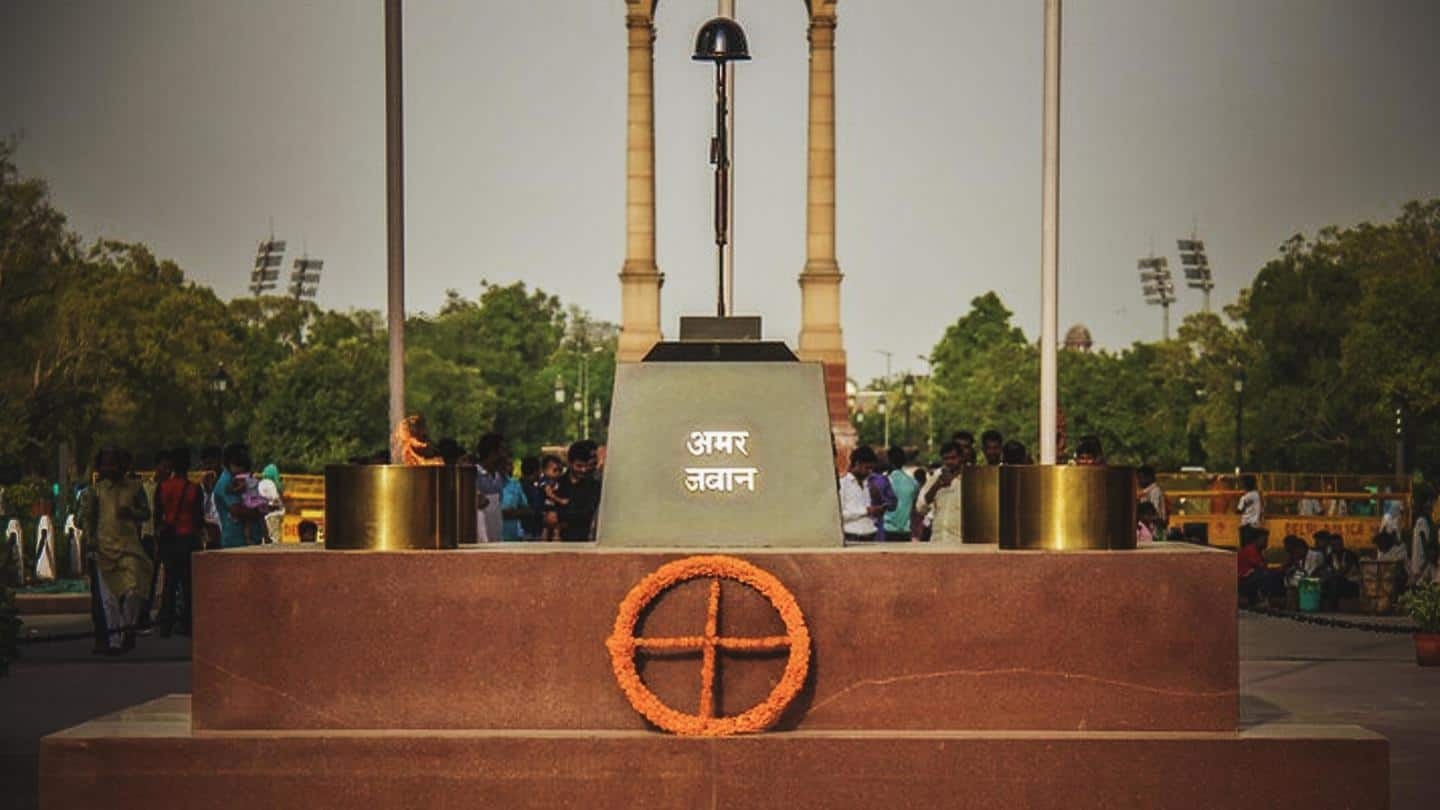
Amar Jawan Jyoti merged with War Memorial flame
What's the story
The Amar Jawan Jyoti flame at the India Gate was merged with the National War Memorial torch in Delhi'>New Delhi on Friday.
The flame, which honored British Indian Army soldiers who had died before India's independence, had been burning for 50 years.
The merger took place in a special ceremony which began around 3:30 pm.
Details
Air Marshal B Radha Krishna presided
Friday's ceremony was presided over by Air Marshal Balabadhra Radha Krishna, the Integrated Defence Staff chief.
The Amar Jawan Jyoti flame was moved in a torch to the War Memorial and then the two flames were merged.
The flame was first lit in 1972 in honor of the Indian soldiers who died in the 1971 war with Pakistan.
Reason
Why was the merger done?
The decision was taken as it was becoming increasingly difficult to maintain two flames in close proximity to each other.
The National War Memorial, which was unveiled in 2019, also carries the names of those soldiers who find a mention on the India Gate.
Hence, a separate flame was not necessarily needed, Army sources had told the media.
Details
War Memorial inaugurated in February 2019
The National War Memorial, unveiled on February 25, 2019, honors soldiers of the Indian forces who fought wars and conflicts for independent India.
The names of the soldiers are inscribed at the memorial in golden letters.
Those who have been honored include officials who died in conflicts with Pakistan, the war in Goa, and Operation Pawan in Sri Lanka, among others.
Information
26,000 soldiers' names on Memorial flame
The flame at the War Memorial is positioned below the central obelisk. It has four concentric circles where the names of nearly 26,000 soldiers are inscribed on granite tablets. The concentric circles are called the Amar Chakra, Veerta Chakra, Tyag Chakra, and the Rakshak Chakra.
History
India Gate honors British Indian Army soldiers
The India Gate was built by the British Indian government to honor the tens of thousands of soldiers from the British Indian Army who had died in the First World War between 1914 and 1921.
Notably, Friday's program came less than a week before India's Republic Day celebrations would take place in Delhi on January 26.
Politics
Centre criticized over the move
However, the central government has been under fire for the move.
Government officials responded to the criticism, saying the flame was "not being extinguished."
It was "ironic that people who did not make a National War Memorial for seven decades are now making a hue and cry when a permanent and fitting tribute is being made to our martyrs," government sources said.